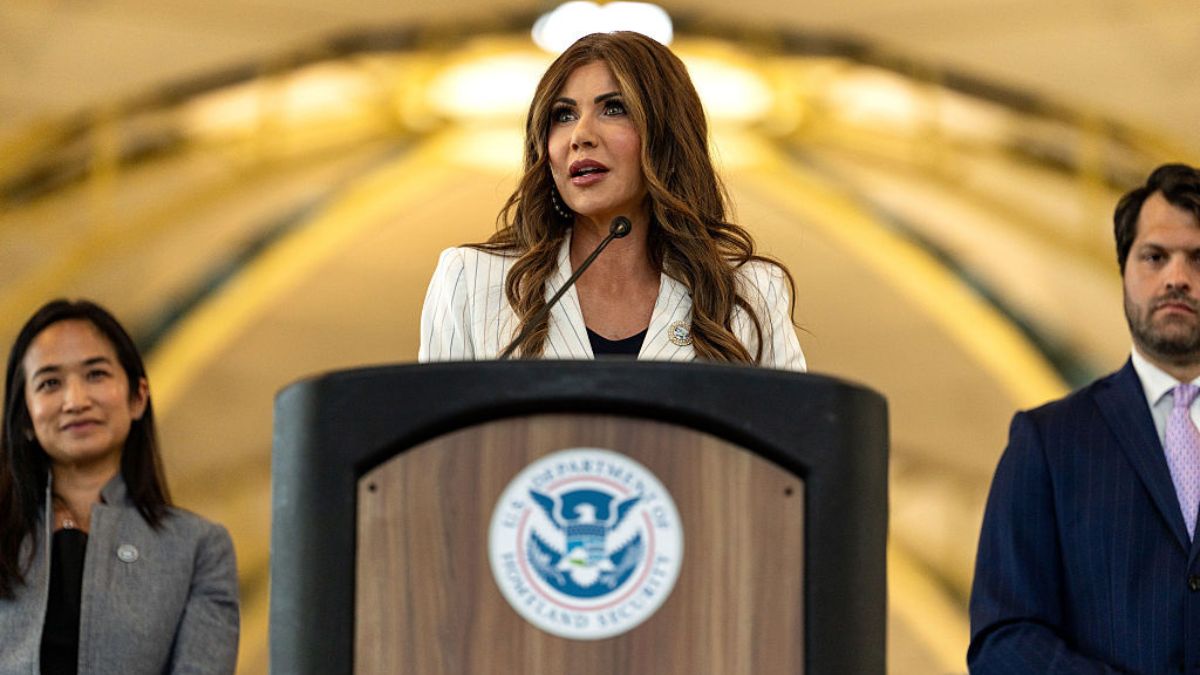
Homeland Security Secretary Kristi Noem is facing criticism over her handling of the recent deadly floods in Texas, particularly regarding the timing of FEMA resource deployment. Questions have emerged about whether earlier action could have been taken to address the crisis.
A recent Washington Post report has revealed significant delays in emergency response efforts due to new bureaucratic requirements implemented by Secretary Noem. The delays have affected the deployment of crucial resources, including tactical and specialized search and rescue teams.
Based on multiple FEMA employees who spoke anonymously, these delays were “a result of a budget restriction requiring Homeland Security Secretary Kristi L. Noem to approve every purchase, contract, and grant over $100,000.” This mandate has created substantial bottlenecks in emergency response operations during the Texas floods.
So, what is Noem busy doing? Last we checked, she is busy making up dangerous lies and spreading them. Like saying that over 13,000 murderers and nearly 16,000 rapists who crossed the border are “walking free” in the U.S. or stressing that ICE had detained a cannibal who started eating himself – all without any remotely credible evidence.
The Trump administration’s broader impact on government efficiency raises concerns
The situation in Texas highlights a larger pattern of increased bureaucratic hurdles within the federal government during Trump’s second term. This stands in contrast to Trump’s campaign promises of bringing greater efficiency to government operations through initiatives like bringing Elon Musk into public service. However, Musk’s actual role in government has been more about wielding unelected power than creating efficiency.
The inefficiencies extend beyond the Department of Homeland Security, creating government-wide problems that may be straining the already tense relationship between Trump and Musk. At the Bureau of Land Management, federal surveyors cannot purchase replacement equipment without going through complex procurement processes. Even simple needs like replacing broken shovels now require special authorization from specific managers.
Wapo: Deployments of critical resources, such as tactical and specialized search and rescue teams, were delayed as a result of a budget restriction requiring Homeland Security Secretary Kristi L. Noem to approve every purchase, contract and grant over $100,000, according to FEMA pic.twitter.com/OHj4o2xf1F
— Wm (@Wm48358578) July 11, 2025
Other agencies are experiencing similar challenges. The Environmental Protection Agency has seen research halted at 11 laboratories due to approval delays for new lab purchases. The National Oceanic and Atmospheric Administration’s weather forecasting work has slowed significantly because Commerce Secretary Howard Lutnick must personally approve many contracts and grants.
The impact of these new regulations is also affecting basic operational needs across government agencies. Some Social Security Administration employees are running short on basic supplies like paper, pens, and printer toner due to strict spending limits on government-issued credit cards. Additionally, vendors must now complete extra paperwork certifying their stance on diversity, equity, and inclusion policies, further slowing government operations.
Beyond federal agencies, these inefficiencies are expected to affect the public directly, particularly in healthcare. New bureaucratic requirements for Medicaid recipients will create additional paperwork burdens, potentially causing eligible individuals to lose coverage due to difficulties navigating the complex administrative processes.







